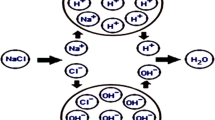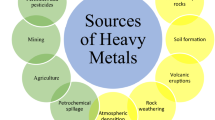Abstract
Hardness in drinking water is undesirable, and hardness can be removed by different methods, such as the lime-soda process, reverse osmosis, ion exchange method, distillation, etc. This study attempts to develop a low-cost water filter to remove hardness with the help of various low-cost available materials. Hardness in water is generally high in groundwater; this causes scaling actions on vessels and health-related issues, such as cardiovascular disease and kidney-related matters. This paper presents the results of investigations carried on the Keelara village, Mandya borewell water on the removal of hardness employing physio-chemical adsorption processes, using locally available and low-cost materials, such as activated carbon, quartz sand, water softener (Resin beads), and bio-ceramic alkaline balls. Experiments were carried out to determine the effect and efficiency of adsorbents on factors such as adsorbent dose and contact time by the adsorption process using collected water samples. By conducting necessary investigations, it was concluded to use 50 g of activated carbon, 100 g of quartz sand, and 30 g of water softener resin beads in layers to achieve maximum efficiency. The hardness removal efficiency of the water filter used in the present study was found to be around 85–90% and the overall cost of the filter is less than Rs. 350.











Similar content being viewed by others
Data availability
Provided in the manuscript.
References
Alcamo J, Florke M, Marker M (2007) Future long-term changes in global water resources driven by socio-economic and climatic changes. Hydrol Sci J 52(2):247–275. https://doi.org/10.1623/hysj.52.2.247
Alchin D, Wansbrough H, Patel J (2016) Ion exchange resins, pp 1–8. https://www.researchgate.net/publication/305658612_ION_EXCHANGE_RESINS
Aremu MO, Olaofe O, Ikokoh PP, Yakubu MM (2011) Physico-chemical characteristics of stream well and borehole water sources in Eggon Nasarawa State Nigeria. Chem Soc Nigeria 36(1):130–137
Aziz NIA, Othman N, Hamood Altowayti WA, Yunus ZM, Fitriani N, Md Din MF, Fikri FM (2021) Hardness removal of groundwater through sand, zeolite and rice husk activated carbon. Malays J Anal Sci 25(4):605–621
Bhakta JN, Munekage Y (2009) Ceramic as a potential tool for water reclamation: a concise review. J Environ Prot Sci 3:147–162
Bindhu BK, Shaji H, Kuruvila KJ, Nazerine M, Shaji S (2021) Removal of total hardness using low-cost adsorbents. IOP Conf Ser Mater Sci Eng 1114:012089. https://doi.org/10.1088/1757-899X/1114/1/012089
Chen Y (2016) Water softening by induced crystallization in fluidized bed. J Environ Sci 50:109–116
Gayathri S, Krishnan KA, Krishnakumar A et al (2021) Monitoring of heavy metal contamination in Netravati river basin: overview of pollution indices and risk assessment. Sustain Water Resour Manag 7:20. https://doi.org/10.1007/s40899-021-00502-2
IS 3025 (Part 21) (1994) Gradation design of sand and gravel filters. Part 633 National Engineering Handbook. October 1994. https://directives.sc.egov.usda.gov/OpenNonWebContent.aspx?content=18397.wba. Accessed 10 Mar 2022
IS 3025 (Part 21) (2009) Method of sampling and test (physical and chemical) for water and wastewater, part 21: hardness (Second Revision). ICS 13.060.50. https://venkatasai.files.wordpress.com/2016/03/is-3025-21-2009-methods-of-sampling-and-testing-physical-and-chemicalfor-water-and-wastewater.pdf. Accessed 30 Jan 2022
IS 10500 (2012) Indian Standard Drinking Water—Specification. Bureau of Indian Standards. Accessed 21 Nov 2021
Kannan D, Mani N (2015) Removal of hardness (Ca2+, Mg2+) and alkalinity from ground water by low cost activated carbon using Eicchornia Crassipes plant. Int J Inst Pharm Life Sci 5(1):2249–6807
Khalifa M, Bidaisee S (2018) The Importance of clean water. https://doi.org/10.26717/BJSTR.2018.08.001719
Lakherwal D (2014) Adsorption of heavy metals: a review. Int J Environ Res Dev 4(1):41–48
Manohar DM, Krishnan KA, Anirudhan TS (2002) Removal of mercury (II) from aqueous solutions and chlor-alkali industry wastewater using 2-mercaptobenzimidazole-clay. Water Res 36(6):1609–1619
Muharrem INCE, Ince OK (2017) An overview of adsorption technique for heavy metal removal from water/wastewater: a critical review. Int J Pure Appl Sci 3(2):10–19
Piao S, Ciais P, Huang Y, Shen Z, Peng S, Li J, Zhou L, Liu H, Ma Y, Ding Y, Friedlingstein P, Liu C, Tan K, Yu Y, Zhang T, Fang J (2010) The impacts of climate change on water resources and agriculture in China. Nature 467:43–51. https://doi.org/10.1038/nature09364
Ramprasad V (2014) Portable water purifiers, pp 12–49. https://doi.org/10.13140/RG.2.1.3000.3605
Singh AK, Gupta LK, Singh VK (2015) A review of low-cost alternative of water treatment in rural area. 10th all India People’s Technology Congress at Kolkata. https://doi.org/10.13140/2.1.3970.1287
Siong YK, Idris J, Mazar Atabaki M (2013) Performance of activated carbon in water filters. Water Resour 1
Sudhakaran S, Mahadevan H, Arun V, Krishnakumar AP, Krishnan KA (2020) A multivariate statistical approach in assessing the quality of potable and irrigation water environs of the Netravati River basin (India). Groundw Sustain Dev. https://doi.org/10.1016/j.gsd.2020.100462
Acknowledgements
Authors thank all the staff members Department of Civil Engineering, PESCE, Mandya for their valuable suggestions who have helped directly or indirectly during this research work. In addition, a special thank for Mr. Parmananda P, Asst. Instructor, Dept., of Civil Engineering who have helped in conducting lab tests during the research work.
Funding
None.
Author information
Authors and Affiliations
Contributions
MMS: methodology and idea formulation. SHJ: methodology. RHJ: data validation. CV: experiment work. UUS: experiment work.
Corresponding author
Ethics declarations
Conflict of interest
There is no conflict of interest.
Ethical approval
Ethical approval is obtained.
Consent to participate
Consent to participate is obtained from all.
Consent to publish
Consent to participate is obtained from all.
Additional information
Publisher's Note
Springer Nature remains neutral with regard to jurisdictional claims in published maps and institutional affiliations.
Rights and permissions
Springer Nature or its licensor (e.g. a society or other partner) holds exclusive rights to this article under a publishing agreement with the author(s) or other rightsholder(s); author self-archiving of the accepted manuscript version of this article is solely governed by the terms of such publishing agreement and applicable law.
About this article
Cite this article
Madhusudhan, M.S., Surendra, H.J., Rajendra, H.J. et al. Removal of hardness using natural and synthetic water treatment system for safe and sustainable water supply in the Indian context. Sustain. Water Resour. Manag. 9, 179 (2023). https://doi.org/10.1007/s40899-023-00954-8
Received:
Accepted:
Published:
DOI: https://doi.org/10.1007/s40899-023-00954-8




